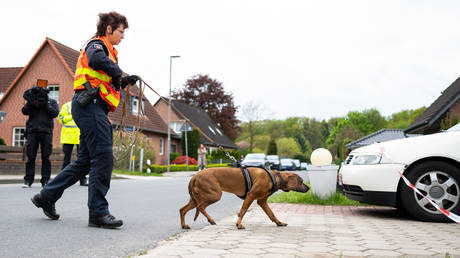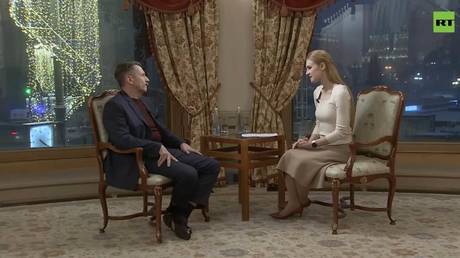Police dogs pulled from duty over new animal rights law
German police have withdrawn highly trained dogs from the front line after a new law on animal rights prohibited the methods used to train and control canines when apprehending criminals. Read Full Article at RT.com

Methods for controlling enforcement canines during police operations were found to contravene new German laws on animal welfare
German police have withdrawn highly trained dogs from the front line after a new law on animal rights prohibited the methods used to train and control canines when apprehending criminals.
Following a law that came into force on January 1, police dogs in Germany were put on an enforced break. The law, introduced by former agriculture minister Julia Klockner, bans the use of punitive stimuli to train or control dogs.
“We are currently unable to deploy a section of our service dogs due to changes in the animal protection act governing dogs,” police spokesperson Thilo Cablitz stated, as quoted by The Guardian.
The police said that some 49 dogs would be suspended from duty until a solution is found. The animals were part of a 130-strong canine contingent which is used for a broad array of operations, including drug busts, arrests, and locating missing persons.
The area of contention is around dog handlers’ use of so-called “pulling collars,” which are used to control the aggression of police canines during operations.
READ MORE: ‘Dozens eliminated’ after trying to storm police stations in Kazakhstan – official
The collar, engaged by a short pull on the dog’s lead, is used to briefly restrict the animal’s breathing, signaling the end of an attack, and preventing the canine from causing serious harm to the assailant.
While the new legislation banning the use of punitive stimuli was intended to improve the broader standards of dog ownership across Germany, police and guard dogs are still subject to the rules.
Under the new law, dog keepers are obliged to walk their animals regularly and spend quality time with them. Pinch collars and chains, apart from under certain circumstances, are now forbidden.
Stephan Kelm, the vice-chair of the Berlin branch of the police union, GdP, said that they were open to finding “innovative training methods, in which it is not necessary to inflict pain. But right now we don’t know of any.” He added that a solution needed to be found, otherwise there would be “severe consequences for domestic security.”
















